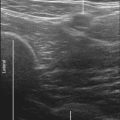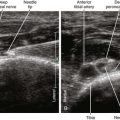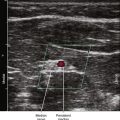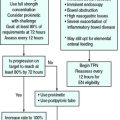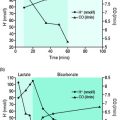
In the rapidly evolving world of healthcare, the importance of advanced training for nurses cannot be overstated. As front-line responders in hospitals, clinics, and community health settings, nurses play a crucial role in the delivery of care to patients. With the medical field constantly advancing, there is a pressing need for nurses to stay abreast of the latest treatments, technologies, and methodologies. This necessity has given rise to specialized training programs designed to equip nurses with the critical skills required to excel in today’s healthcare environment.
These advanced training opportunities are transforming the landscape of nursing, enabling professionals to provide exceptional care and adapt to the complex challenges of modern medicine. From enhancing direct patient care skills to integrating cutting-edge technology into everyday practice, the journey of a nurse in an advanced training program is both challenging and rewarding.
As we explore how these programs are elevating patient care, it becomes clear that the future of healthcare is being shaped directly by the nurse’s station.
Programs in Modern Healthcare
The healthcare sector continuously evolves, adapting to new challenges and innovations. Within this dynamic field, the role of nurses is increasingly pivotal. Advanced training programs are at the forefront of transforming nursing practices.
These programs are rigorous and fast-paced, designed to build upon previous non-nursing education and experience. The online second degree ABSN for example, enables career changers to leverage their past educational achievements and transition into nursing in a condensed time frame. This flexibility allows students to manage their studies alongside other personal and professional commitments, making a career change into nursing both accessible and convenient.
Enhancing Clinical Skills and Knowledge
Advanced training in nursing goes beyond basic healthcare duties, enhancing a nurse’s ability to perform complex clinical assessments and procedures with greater independence. For instance, nurses with advanced training are often more proficient in patient monitoring, administering medications, and using high-tech equipment. These capabilities are critical in settings like intensive care units and emergency rooms, where quick decision-making and precision are essential. Advanced training also equips nurses with updated best practices, ensuring that patient care is not only efficient but also meets the latest health standards.
The Impact of Specialized Training on Patient Outcomes
Nurses with specialized training in fields such as pediatrics, geriatrics, or oncology are equipped to provide more targeted and effective care. Specialized knowledge allows nurses to better understand the unique needs of different patient groups, leading to improved treatment plans and healthier outcomes. For example, pediatric nurses trained in child-specific illnesses and psychological approaches can significantly improve the hospital experience for young patients and their families. Similarly, geriatric nurses play a crucial role in managing the complex health patterns of older adults, often preventing the need for extensive hospitalization.
Technology and Nursing Education
The integration of technology in nursing education is revolutionizing how nurses are trained. Advanced training programs now often include simulation labs and virtual reality (VR) scenarios that mimic real-life medical emergencies and routine procedures. This hands-on approach allows nursing students to hone their skills in a controlled, risk-free environment. For example, VR can simulate a high-stress medical emergency, enabling students to practice their response to such scenarios without the risk of harming a real patient. These technological tools not only enhance the learning experience but also prepare nurses for the technological competencies required in modern healthcare settings.
Interprofessional Education and Collaborative Practice
Interprofessional education is crucial in the modern healthcare environment where collaboration among various healthcare professionals is key to delivering optimal patient care. Advanced nursing programs often include modules that promote teamwork across different healthcare disciplines. For instance, nurses might train alongside physicians, pharmacists, and social workers, learning how to communicate effectively and coordinate care. This collaborative approach helps break down the silos within healthcare settings, ensuring that patient care is a cohesive and unified effort. Such training enhances the nurse’s ability to navigate complex healthcare environments, improving patient outcomes through coordinated strategies.
Leadership and Management Training for Nurses
Leadership is another critical aspect of advanced nursing training. As the healthcare landscape becomes more complex, the need for nurses who can assume leadership roles within healthcare teams and organizations increases. Advanced programs often include leadership courses that focus on decision-making, conflict resolution, and effective communication. These skills are essential for nurses who must lead teams, manage patient care logistics, and advocate for improvements in healthcare delivery. Through this training, nurses are prepared not just to participate in the care process but to lead it, ensuring that patient care standards are continually enhanced.
Challenges in Advanced Nursing Training
While the benefits of advanced nursing training are immense, there are significant challenges that nurses face when pursuing higher education. Balancing work, studies, and personal life can be daunting. Financial burdens also play a critical role, as advanced education can be costly, and not all nurses have access to sufficient funding or scholarships. Additionally, finding appropriate clinical placements that offer the necessary real-world experience can be a hurdle, particularly in specialized fields. These challenges require careful consideration and planning by prospective students and supporting institutions to ensure successful outcomes.
Conclusion
The advancement of nursing through specialized training programs is not just a benefit but a necessity in the evolving field of healthcare. Programs like online accelerated nursing degrees are pivotal in preparing nurses who are equipped not only with advanced clinical skills but also with the ability to lead, collaborate, and continue learning throughout their careers.
These elements are essential for elevating patient care and responding effectively to the dynamic demands of healthcare. As we look to the future, the continued emphasis on advanced training in nursing promises not only to enhance the capabilities of individual nurses but also to improve the overall health outcomes for patients. The trajectory of nursing education is set to increasingly influence the quality of healthcare, making an indelible impact on society.

